Journalism is changing, especially since the beginning of the full-scale war. We are no longer on the sidelines but inside the event, so safety rules are paramount. Therefore, the National Union of Journalists of Ukraine (NUJU) has held the respective training for Ukrainian media workers.
The danger of the Zaporizhzhia nuclear power plant being blown up by the Russian army still remains. The enemy’s intimidation campaign doesn’t stop, so we must be ready. But the work of a journalist during a disaster is quite essential. The first duty is to inform society and record the crime to further provide the material to law enforcement agencies.
With the support of Reporters Without Borders, the NUJU’s Kyiv Journalists’ Solidarity Center (JSC) organized training on radiation hazards. The meeting with Maksym Dovhanovskyi, the author of the modular training program on responding to chemical threats, corrected the journalists on the right actions in case of danger. And Yuliya Surkova, a war correspondent with considerable experience working in the zones of man-made disasters, shared her experience using the example of the Kakhovka hydroelectric power plant explosion.
Coach Maksym Dovhanovskyi shared tips on how to act in the event of a nuclear power plant explosion.
The most important were:
- if you feel that this has happened, find the nearest shelter, wash off the radiation dust, and change into clean clothes; if the water-powered pumping stations have already been turned off, at least wipe the exposed areas on the body with wet wipes;
- if it so happens that you were at home during the disaster, do not run away, but on the contrary, close the windows and doors as tightly as possible and turn off the lights. But in both cases, wait for the evacuation notification because, at this time, the evacuation corridor is already being organized.
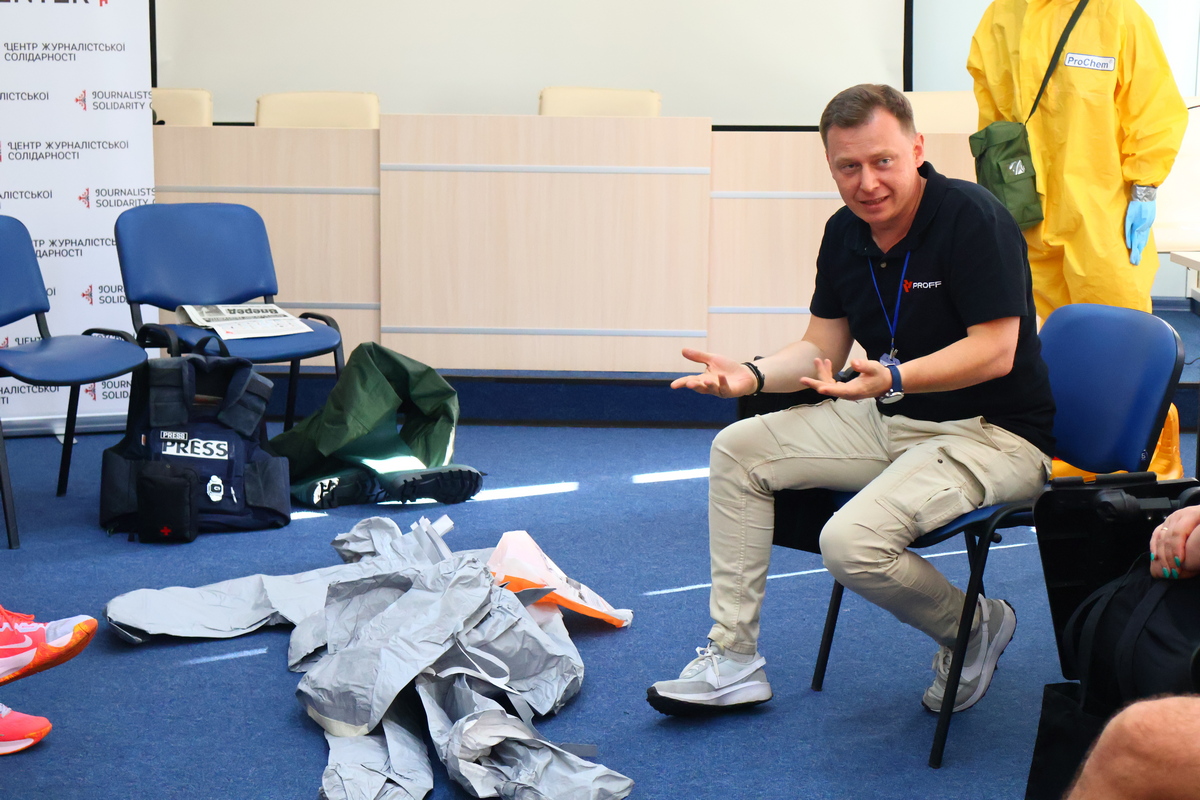
Journalist Yuliya Surkova shared with her colleagues the information about her trip to Kakhovka, where a HEPP was blown up and the nearby settlements were flooded. Using her example, she told what must be done in case of catastrophic situations, especially during war. This knowledge of the safety of journalistic activity in “hot spots” concerns both medical care and ethical and psychological norms.
Most important pieces of advice by the war correspondent:
- do not settle near military units, humanitarian aid distribution points, or regional administrations;
- have with you a complete first-aid kit, clothes with long sleeves, and pants that completely cover the legs;
- water, food with a long shelf life, and a power bank are also necessary. Documents can be hidden in a specially protected, water-proof bag.
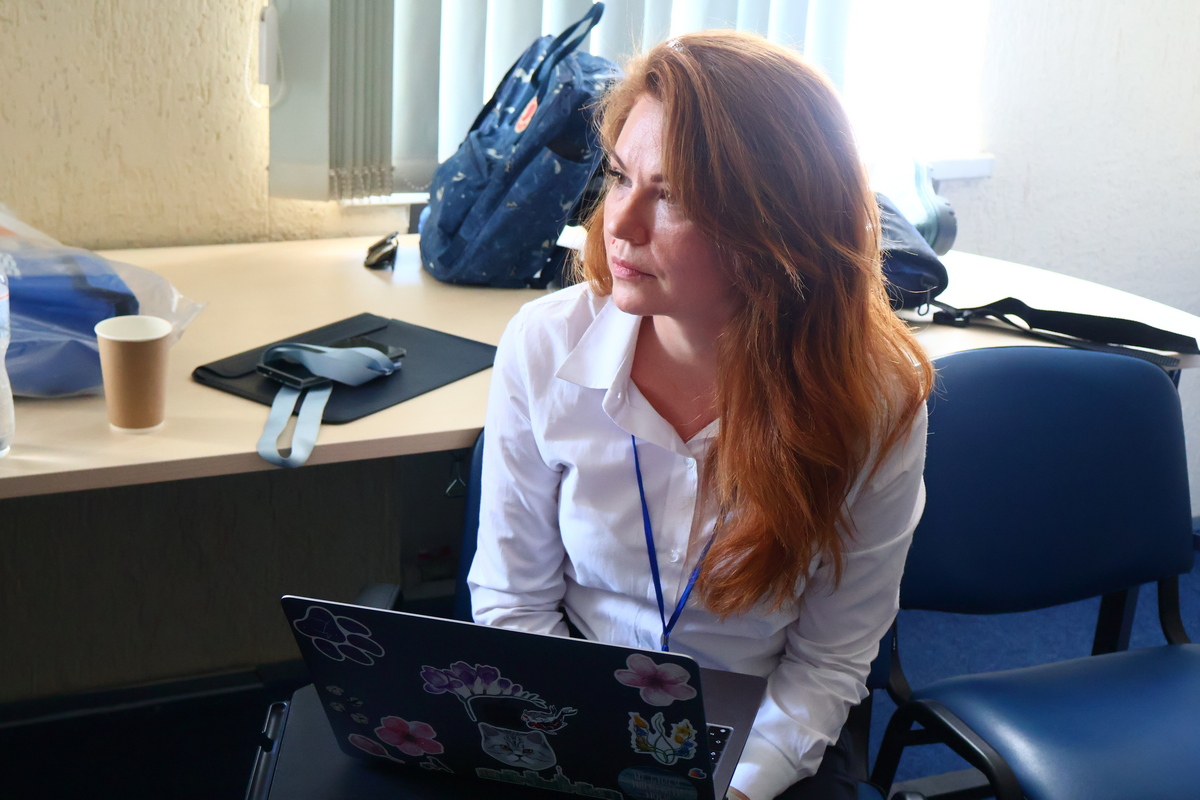
Thanks to Reporters Without Borders, the journalists not only had the opportunity to practice after the lecture but also received protective equipment each.
Also, coach Maksym Dovhanovskyi emphasized that a gas mask should be used not to have an opportunity to work in a dangerous zone but to leave such a zone. The same concerns conducting journalist reports from the scene of a missile or rocket hit as, for some time, a projectile emits a chemical substance able to burn people’s lungs. Therefore, you wear a gas mask and increase the distance from dangerous places.
At the end of the training, all participants, according to the already established tradition, received a certificate confirming the acquisition of basic safety knowledge for media representatives working in Ukraine.
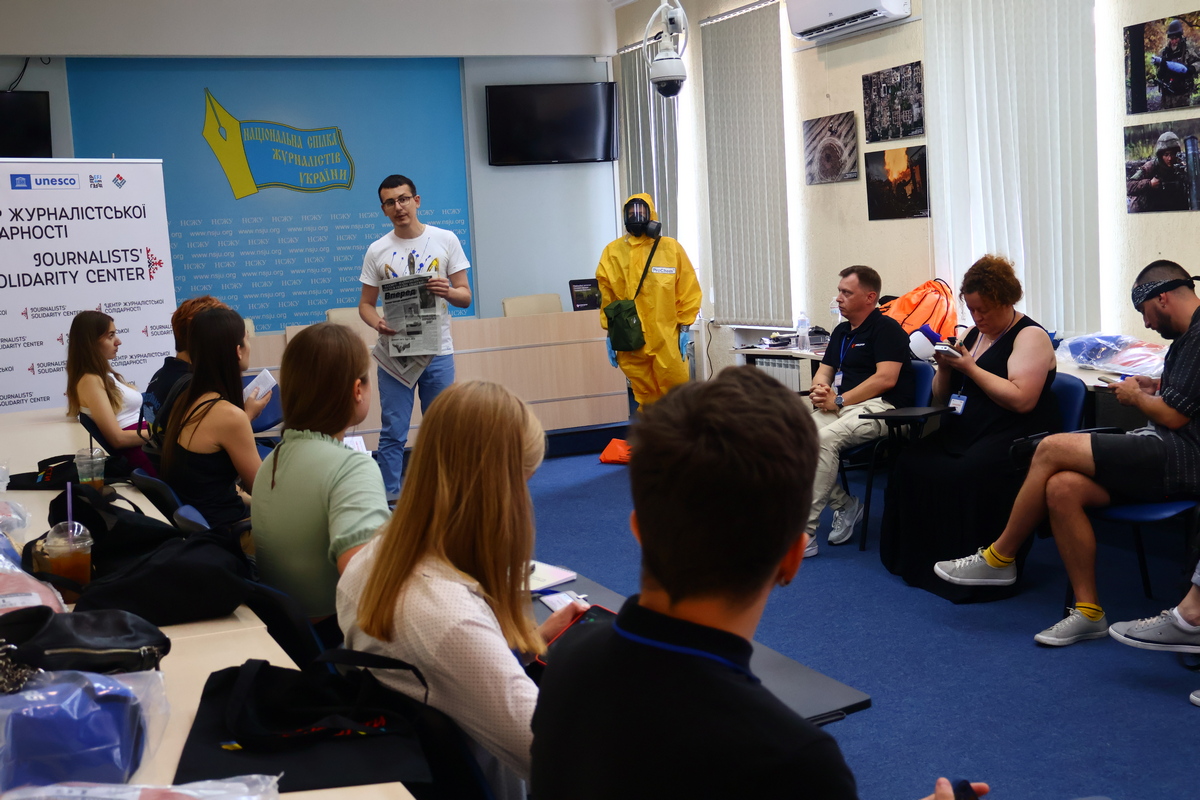
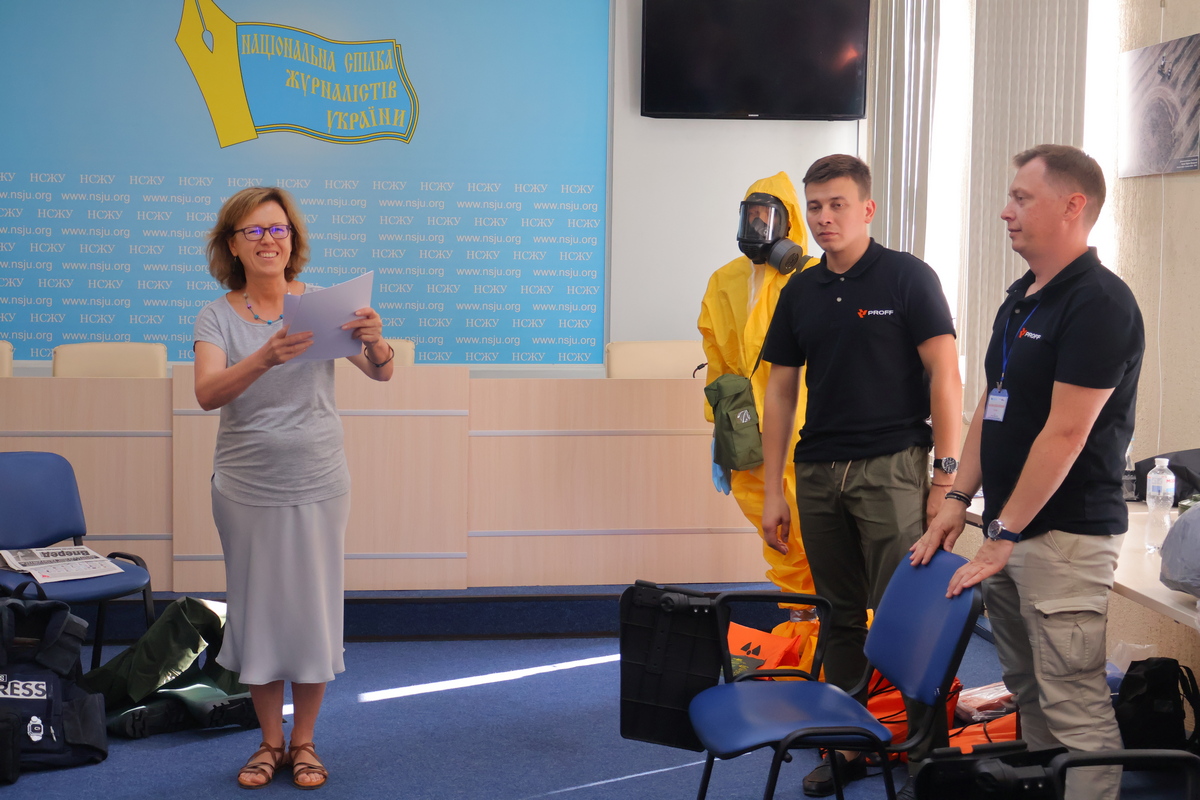
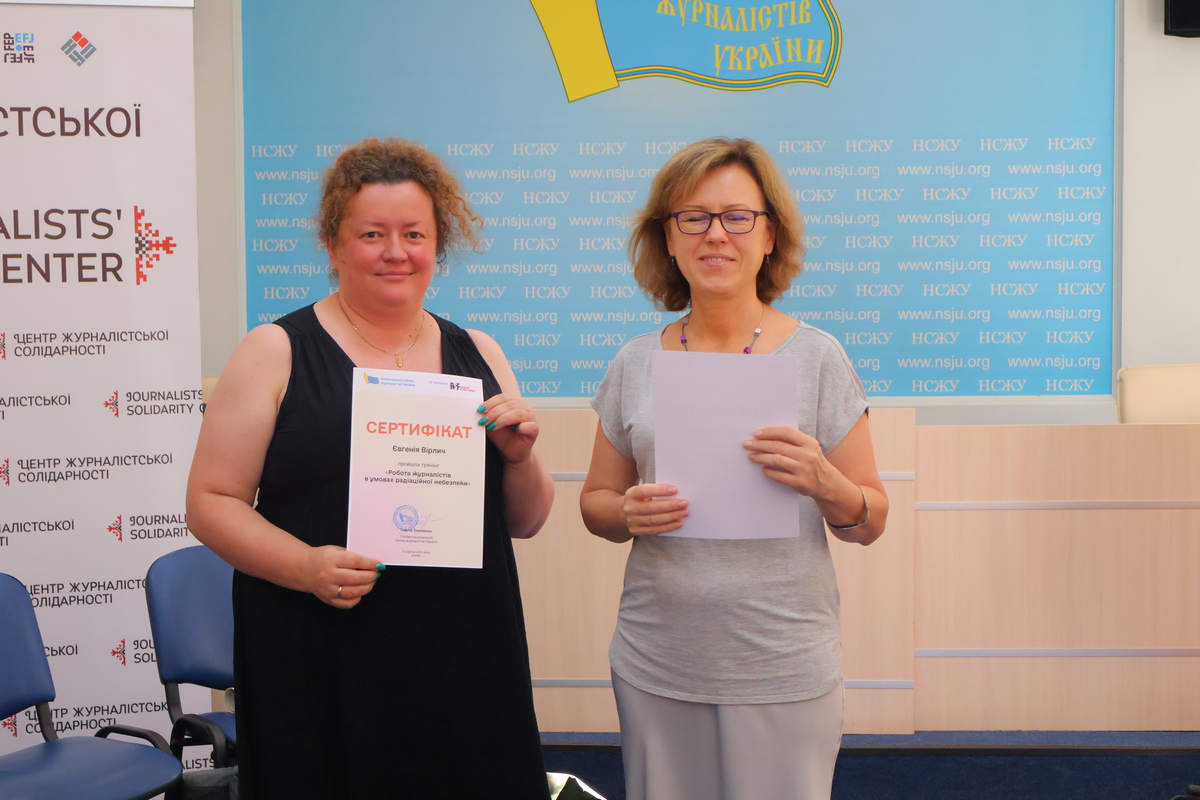
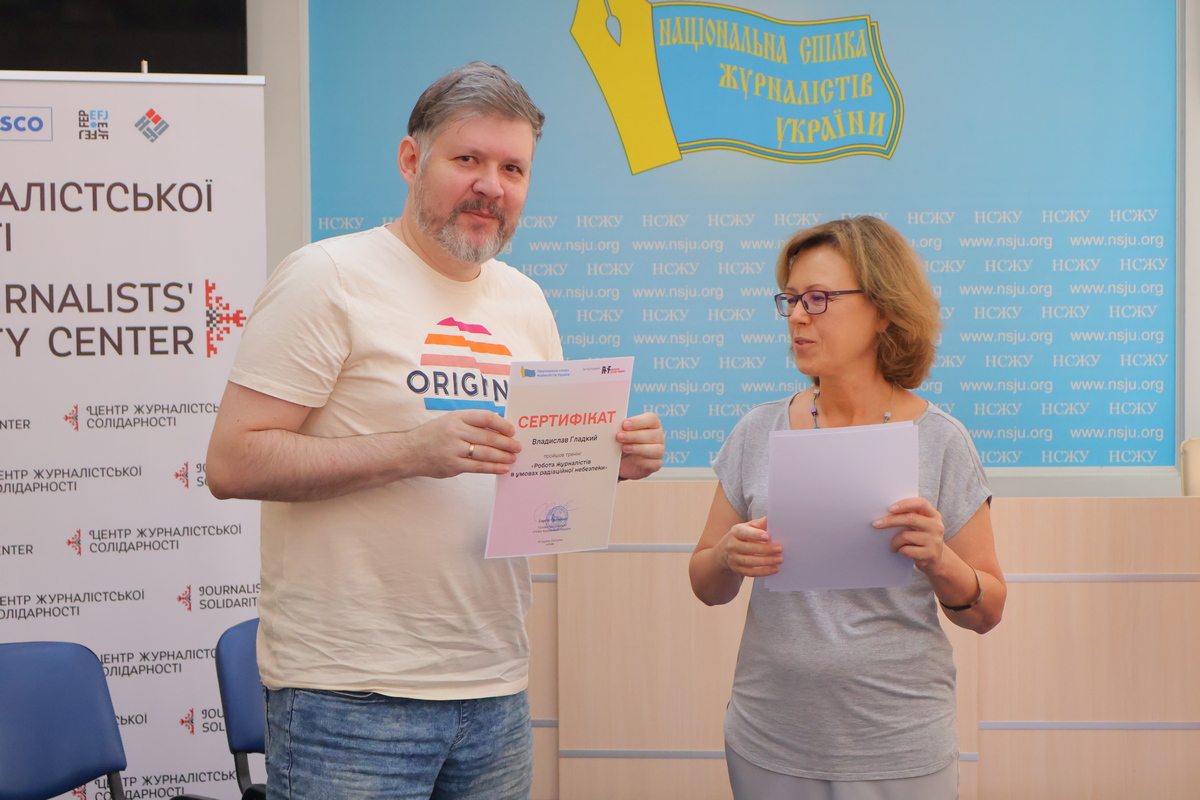
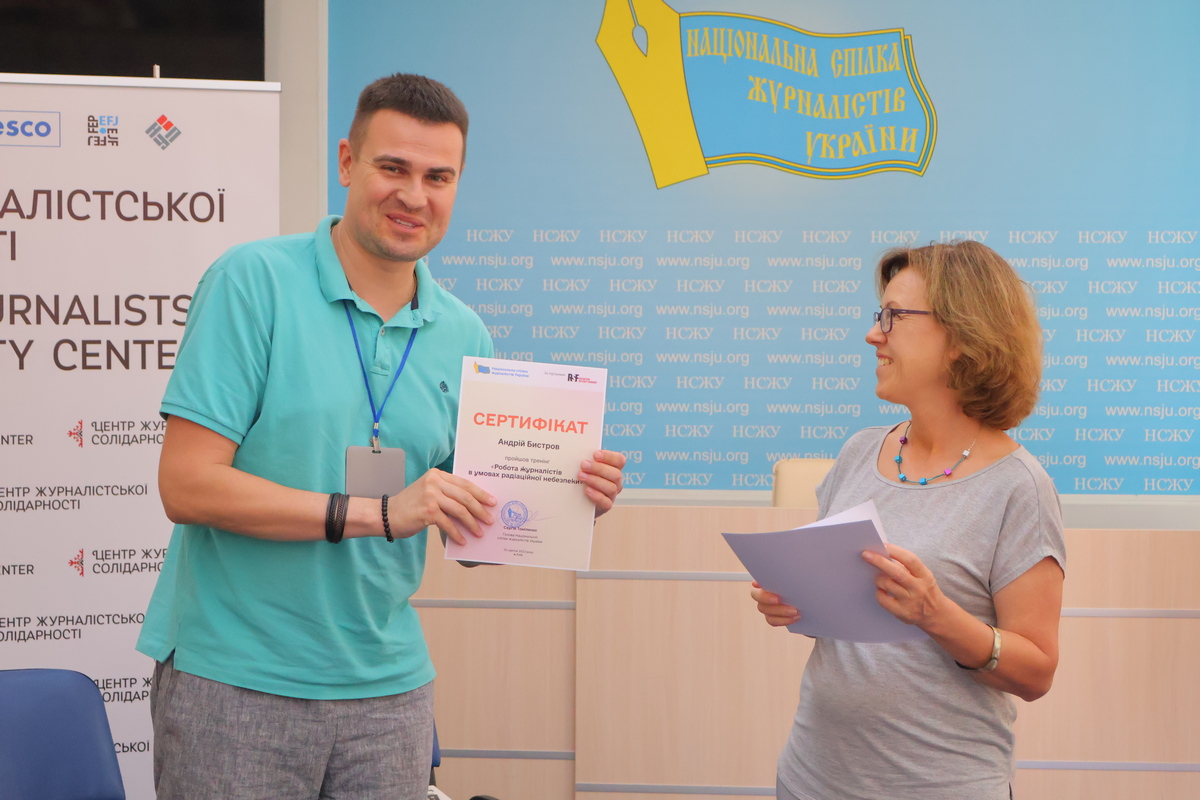
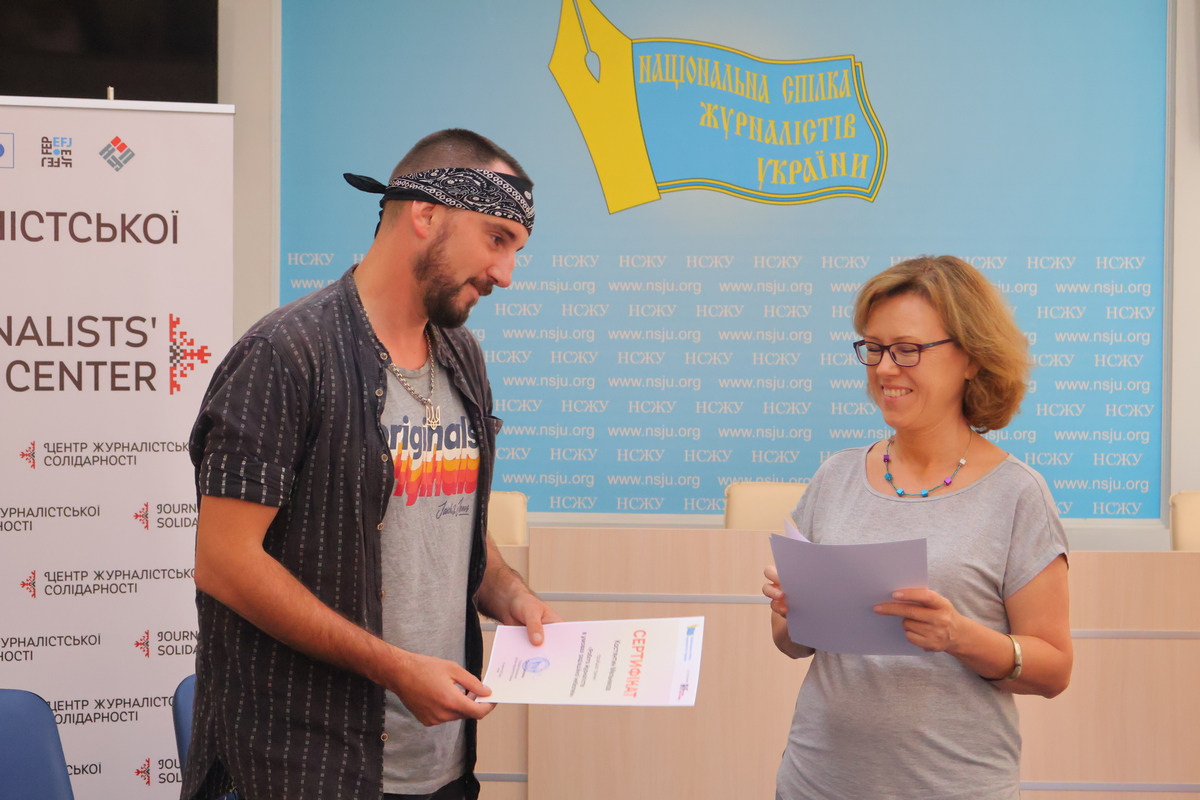
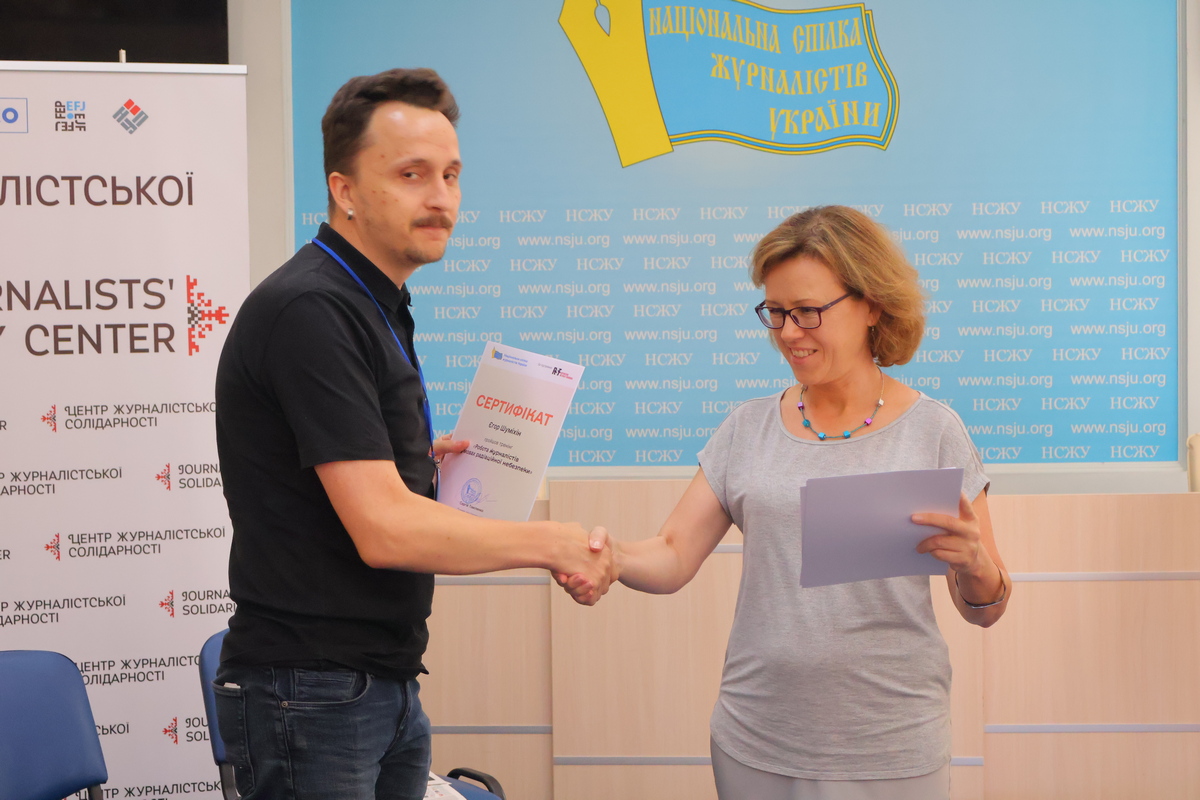
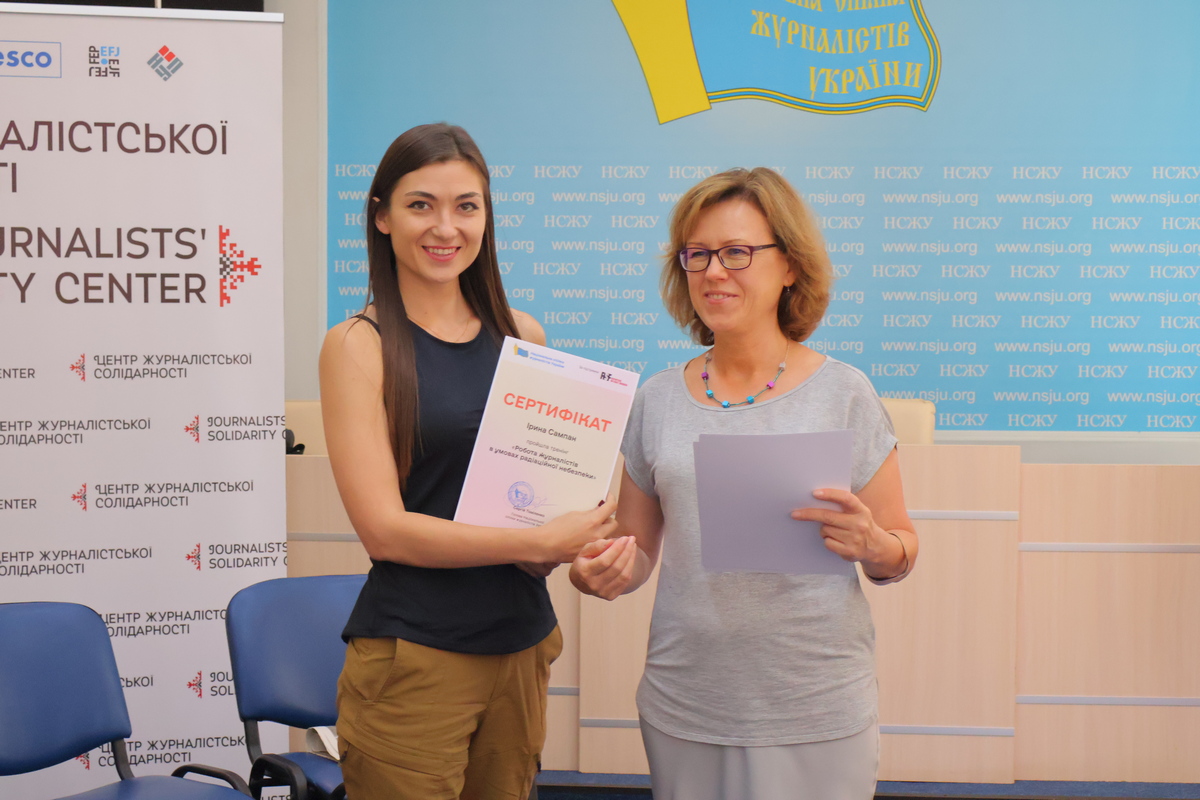
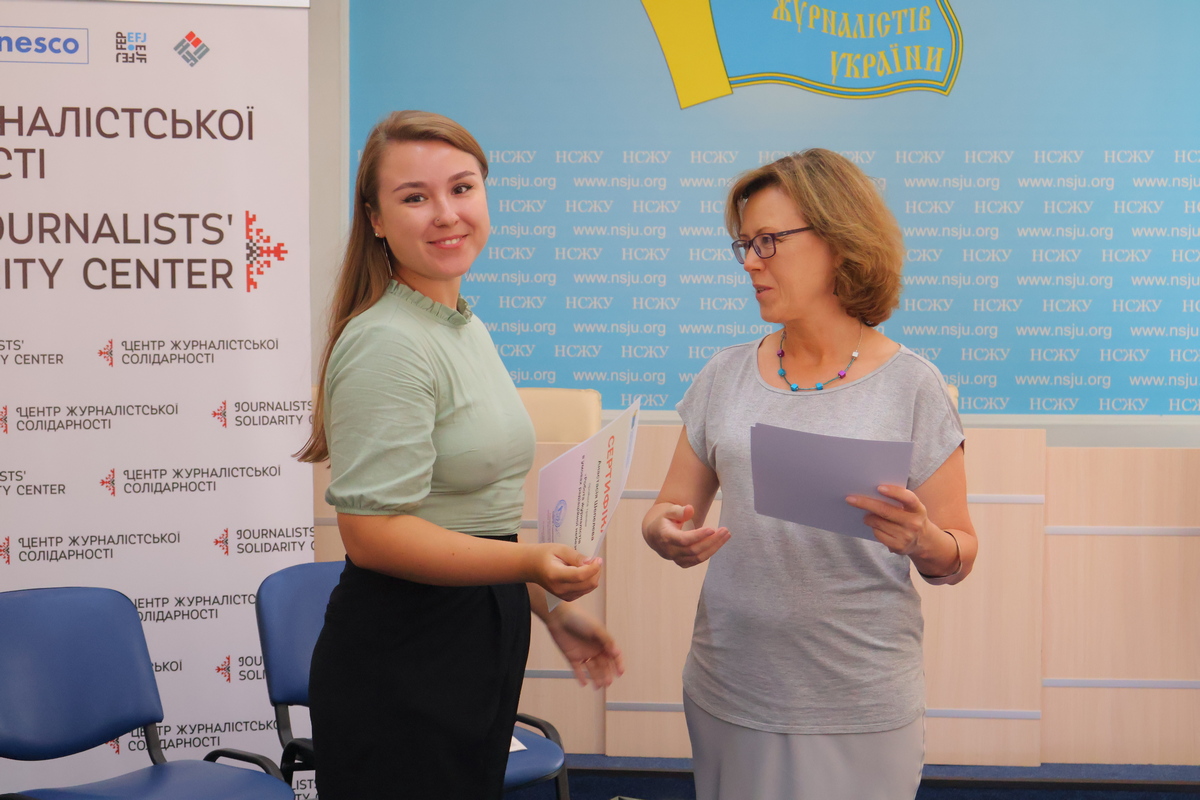
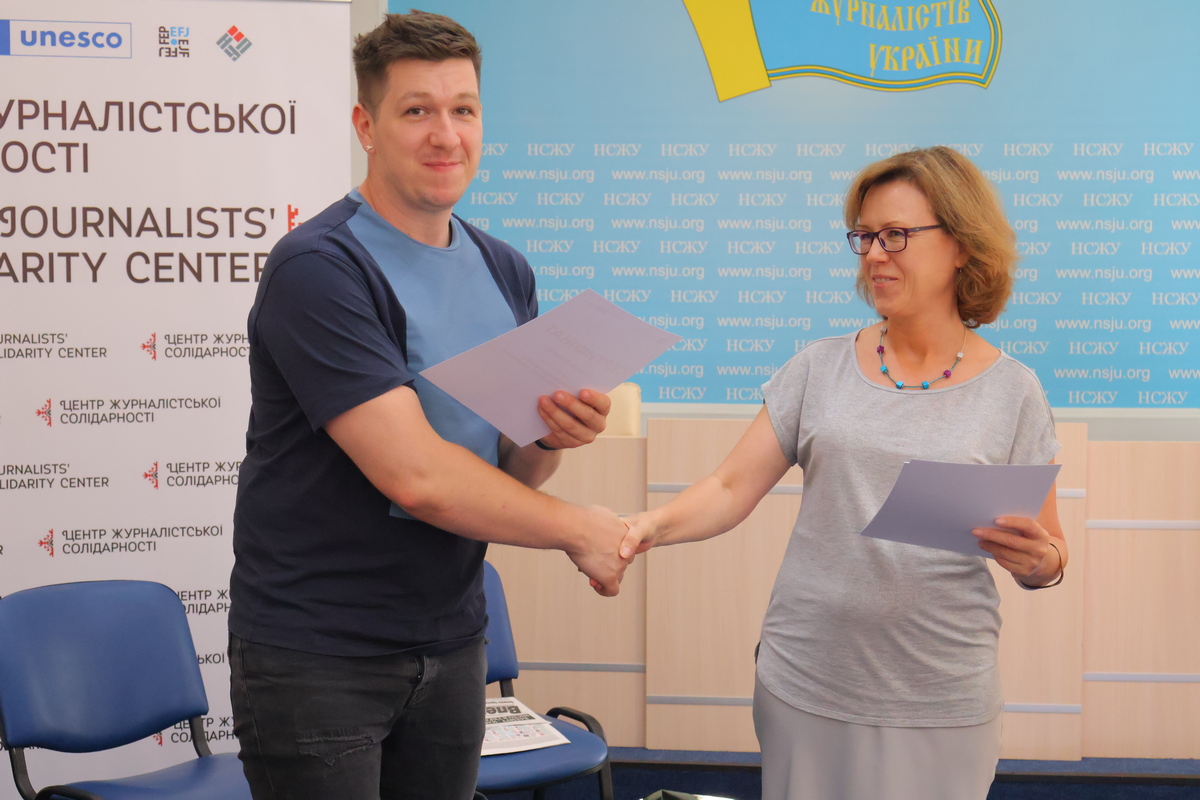
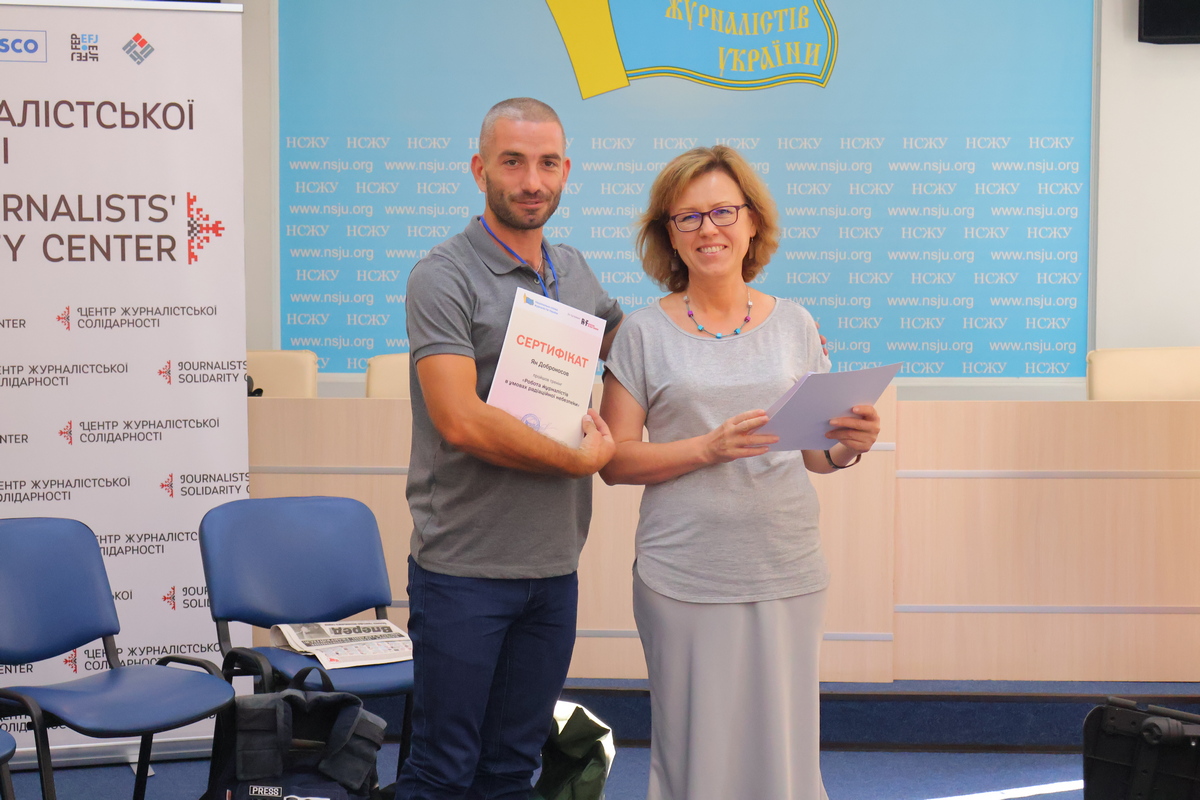
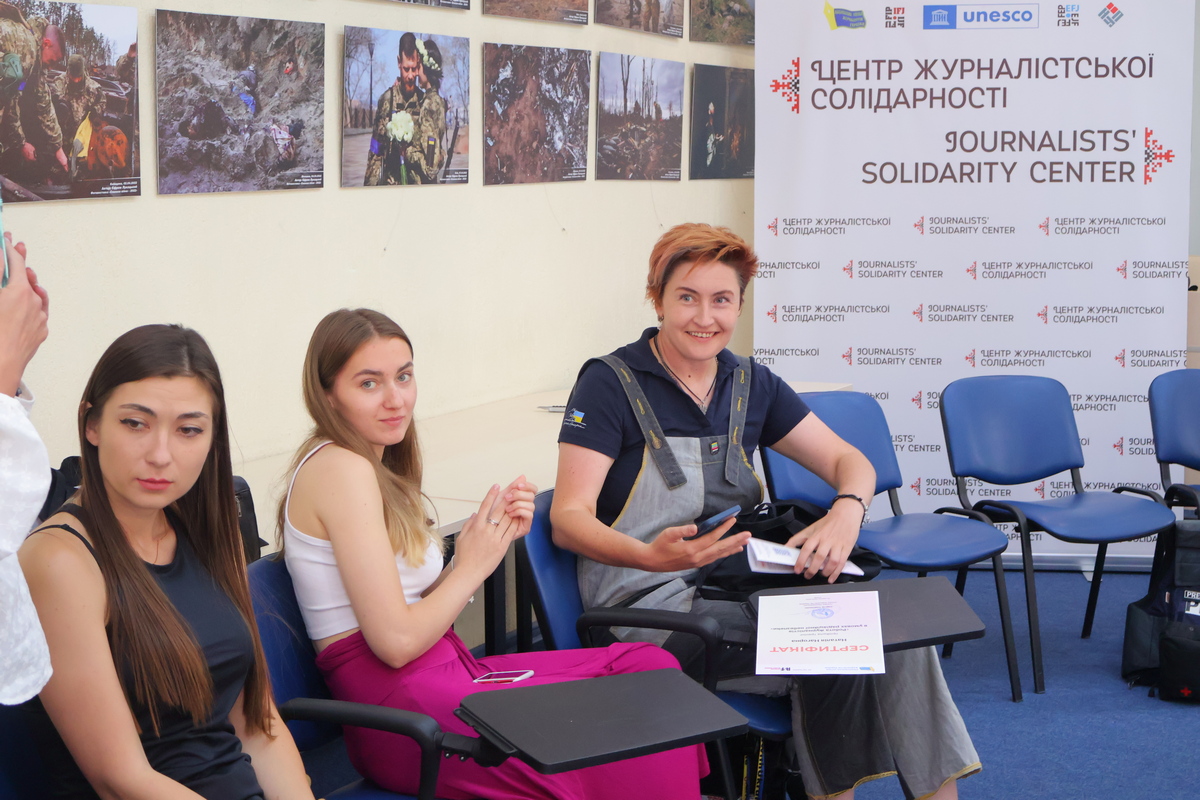

NUJU Information Service

 THE NATIONAL UNION OF
JOURNALISTS OF UKRAINE
THE NATIONAL UNION OF
JOURNALISTS OF UKRAINE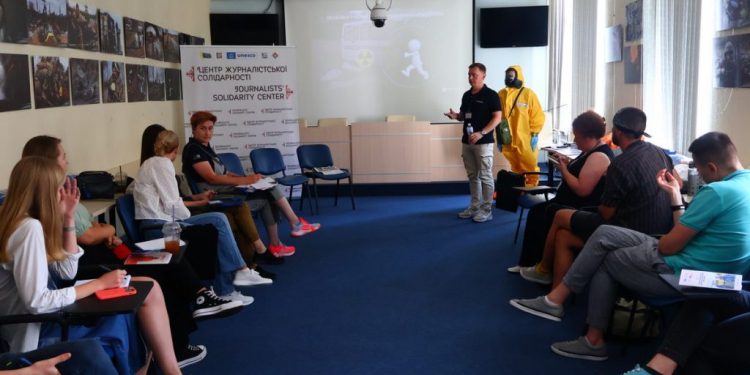
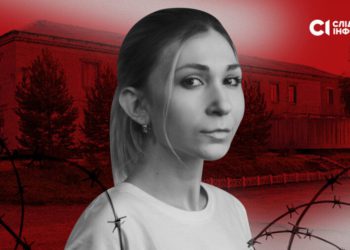















Discussion about this post